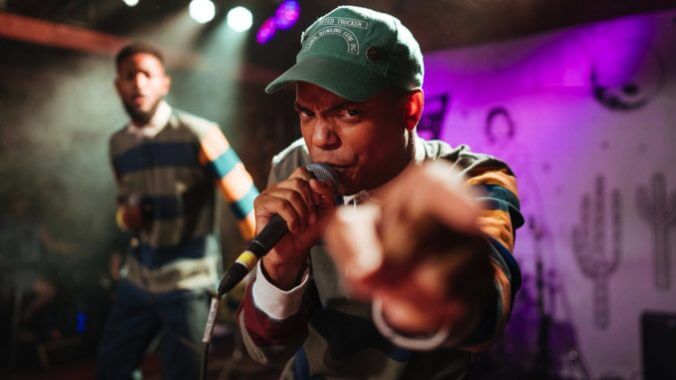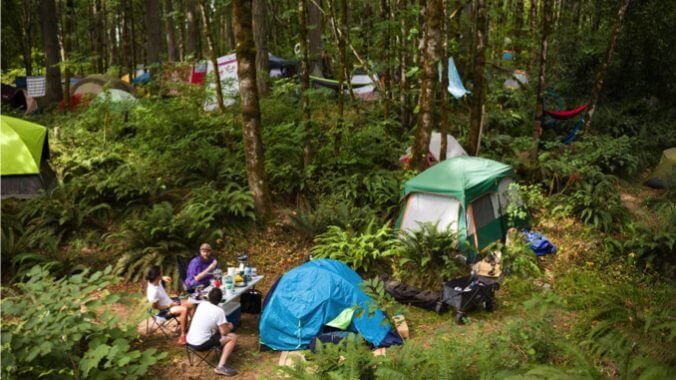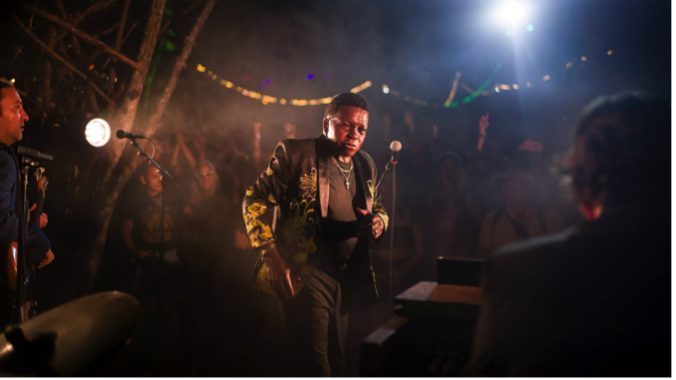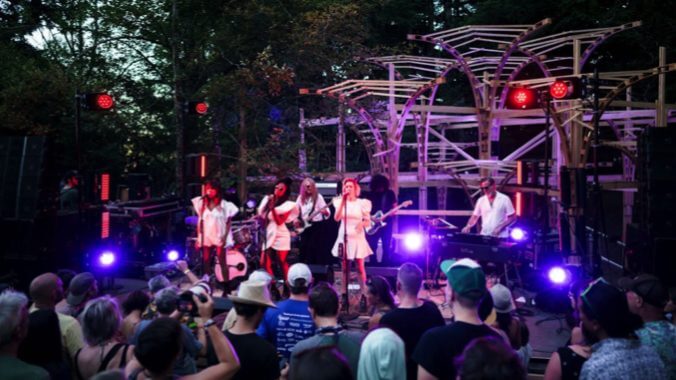Pickathon Showed Why It’s the Best Indie Festival in the Country
They Hate Change photo By Nehemiah Sliwoski
That’s a lofty headline, I know. But there was so much about this past weekend’s Pickathon Festival in Oregon (Aug 3 – 6) that looked like what I want to see in the world. You know, that collective “power of music festivals” that people talk about when trying to sell you on the experience? It was all totally there at Pickathon. An intentional festival community, yet one without the hokey-ness common at transformational fests in the Burning Man ilk. Yes, a lot of it was about the music (don’t let the name fool you, the lineup was incredibly eclectic), but most of it was about everything surrounding it, setting the standard towards sustainability and a certain group of people that helped make it all possible. In a decade of covering festivals, Pickathon was a cut above. Let me explain.
A 25-ish minute drive from Downtown Portland, Pendarvis Farm has been hosting Pickathon since 2006 (the fest began in 1999.). It’s an 80-acre property that climbs up into hills filled with meadows, forests and two enchanting barns that pack a punch when they’re humming. I arrived on Thursday afternoon, reeling from two days of eating and drinking through Portland’s endless sea of bars, restaurants and food cart pods. Driving through the growing suburb of Happy Valley to the farm, tract houses and paved complexes were still glistening. “Every time I come here it looks different,” my driver remarked. I’d come to understand what this meant later on, but I was struck by how close Pickathon was to the nearby PDX metropolis.
And while you could conceivably arrive every day and retreat back home late in the evening before doing it again for four days, camping is free with a weekend pass and the camps are masterfully woven into the venue’s footprint. I had a five-minute walk from my campsite into the heart of the fest, or an even shorter stroll the opposite direction to the mystical Woods Stage, a place where I’d encounter some of the most joyful moments of the weekend.

Campsite photo by Rob Kerr
You get handed a stainless steel Pickathon cup with your wristband upon arrival and it becomes your most essential festival tool throughout the weekend. I clipped mine to the side of my shoulder-slung fanny pack and filled it all weekend with free water (yes please!) and craft beer from PNW fave breweries like Fort George, Fracture, pFriem, Migration and others. Each bar has a different beer lineup (plus cider and batched cocktails) so you learn to spot your faves and make pit-stops if you’re strolling past.
The stainless steel cups are part of a greater effort from Pickathon, which became the first festival to eliminate plastic tableware over a decade ago. If you’ve seen the heinous sea of plastic cups on the ground at the end of other fests, this should melt your inner environmentalist heart. There’s also a plate exchange system when you buy food, where you turn in a token for a plate of Portland-curated offerings like Verde Cocina’s breakfast burritos, Obon Shokudo’s plant-based Japanese fare, Kachka’s Russian dumplings and giant tots (!!!) from Bend’s TOTS! then clean it off, hand it in and get your token back. What a fucking concept. The simple exchange of tokens and plates created a collective effort concept that trickles down, not to mention reducing the weekend’s overall waste by 30%.
This year, Pickathon took their efforts from zero waste goals, to working towards zero emissions. A hydrogen fuel cell generator powered some of the many stages and was on full display as it was operating (an obligatory Simpsons reference is in order here.)
So you get it by now, this is a pretty chill place to spend a weekend that cares about its impact on the Earth. But what about the tunes? For a first timer like me, everyone was giving me a spiel about how “Pickathon is all about discovery!” reeling off names of artists they’d seen on the farm in the past before they were large like Sturgill Simpson (2011), Leon Bridges (2016), Big Thief (2017), Black Pumas (2018) and even Wet Leg last year. But I remained a skeptic. For someone who digs through the troves of as many new releases as humanly possible and spends more evenings than they care to admit at local venues as a profession, I wasn’t prepared to be knocked sideways by the absurd energy of Tampa’s They Hate Change, a hip-hop duo currently signed to Jagjaguwar Records. They produce their own beats that dip into drum-and-bass realms I’d only heard explored before by acts like Ratking and Zion-I. In the tightly packed, sweaty energy of the Galaxy Barn on Friday night, they rapped like their lives depended on it and clearly wanted the stage.
I also wasn’t ready to have my world rocked this hard by Wednesday. The Asheville, N.C., band fronted by Karly Hartzman’s latest album, Rat Saw God, hit me too harshly at home, but when I saw them live on the expansive, mountainous horizon-backed Paddock Stage, I nearly fell out of my shoes in maybe the best rock ‘n’ roll performance I’d seen this year. These kids wanted to thrash, Hartzman is a dynamite songwriter and I could feel every single emotion in her vocal outpourings that ranged from Southern country to screamo. She’s a revelation and the band is pure fire.
Wednesday’s guitarist, MJ Lenderman, played a set of his own music on the Woods stage that I enjoyed swinging from a hammock at 3pm, doing my damndest to erase a combination of a hangover and the getting-used-to period of that first night of sleep in a tent for the weekend. On set closer, “Tastes Just Like It Costs,” I felt the ghost of Jason Molina coursing through the gentle breeze of the trees. This totally ruled.

Lee Fields photo by Rob Kerr
-

-

-

-

-

-

-

-

-

-

-

-

-

-

-

-

-

-

-

-

-

-

-

-

-

-

-

-

-

-

-

-

-

-

-

-

-

-

-

-









































